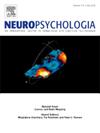Sleep and script-based memory distortions
IF 2
3区 心理学
Q3 BEHAVIORAL SCIENCES
引用次数: 0
Abstract
Sleep has been widely studied for its role in memory consolidation, including its influence on false memory formation. While previous research suggests that sleep enhances associative false memories, its effect on reconstructive memory distortions remains unclear. This study investigated whether sleep influences false memory production in a script-based paradigm, which reflects real-world memory distortions. Seventy-two participants were assigned to either a Sleep or Wake condition, undergoing memory testing before and after a 12-h delay. False memories were assessed through gap-filling and inferential causal errors, using visually presented narratives depicting everyday events with neutral or emotionally negative outcomes. Results showed no reliable effect of sleep on false memory formation, regardless of error type or emotional valence. These preliminary findings contrast with prior studies using associative paradigms, suggesting that script-based false memories may rely on cognitive mechanisms that are less susceptible to sleep-related consolidation. Our study highlights the importance of task-specific processes in shaping the relationship between sleep and memory distortions, suggesting the need for further research to clarify the conditions under which sleep may contribute to memory distortions.
睡眠和基于脚本的记忆扭曲
睡眠在记忆巩固中的作用已被广泛研究,包括它对错误记忆形成的影响。虽然之前的研究表明睡眠会增强联想错误记忆,但它对重建记忆扭曲的影响尚不清楚。这项研究调查了睡眠是否会影响基于脚本的错误记忆的产生,这反映了现实世界的记忆扭曲。72名参与者被分配到睡眠或清醒状态,在延迟12小时之前和之后接受记忆测试。错误记忆通过空白填补和推理因果错误来评估,使用视觉呈现的描述日常事件的中性或情绪消极结果的叙述。结果显示,无论错误类型或情绪效价如何,睡眠对错误记忆的形成没有可靠的影响。这些初步发现与先前使用联想范式的研究形成对比,表明基于脚本的错误记忆可能依赖于认知机制,而认知机制不太容易受到睡眠相关巩固的影响。我们的研究强调了任务特定过程在塑造睡眠和记忆扭曲之间关系中的重要性,这表明需要进一步的研究来阐明睡眠可能导致记忆扭曲的条件。
本文章由计算机程序翻译,如有差异,请以英文原文为准。
求助全文
约1分钟内获得全文
求助全文
来源期刊

Neuropsychologia
医学-行为科学
CiteScore
5.10
自引率
3.80%
发文量
228
审稿时长
4 months
期刊介绍:
Neuropsychologia is an international interdisciplinary journal devoted to experimental and theoretical contributions that advance understanding of human cognition and behavior from a neuroscience perspective. The journal will consider for publication studies that link brain function with cognitive processes, including attention and awareness, action and motor control, executive functions and cognitive control, memory, language, and emotion and social cognition.
 求助内容:
求助内容: 应助结果提醒方式:
应助结果提醒方式:


